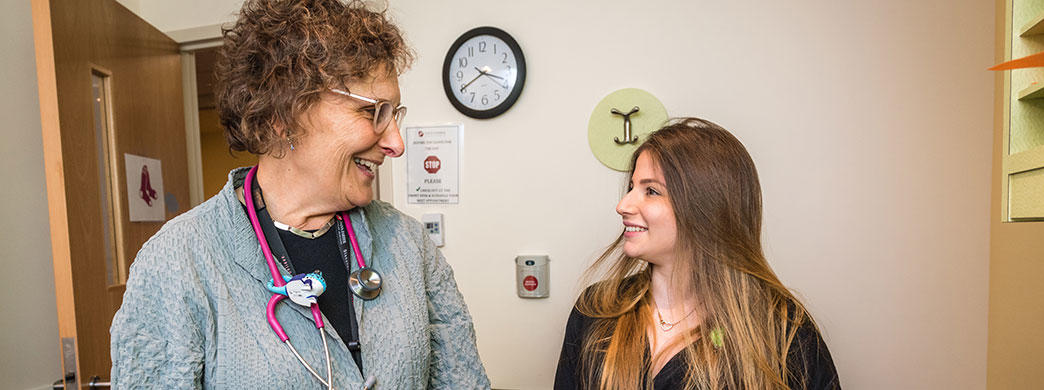Childhood Cancer Survivorship

Caring for children with cancer doesn’t end after treatment. Our patients have lives outside of the hospital, and we provide the services they need to transition back to life and to thrive in school, work, and play.
Survivors of childhood cancer and their families often have unique needs and concerns, and our survivorship programs were established to address them. The medical experts at Dana-Farber/Boston Children’s Cancer and Blood Disorders Center can provide insight about any risk of learning disabilities, infertility, heart problems, secondary tumors, and genetic issues. In addition, counselors can help with unresolved feelings and emotions about the cancer and its treatment.
We also learn from our survivors. By collecting information about late effects of cancer and treatment, we improve how we treat our current patients.
Transition to Survivorship
Our Transition to Survivorship program provides support and education to help families transition from active treatment for childhood cancer to off-therapy care. After about two years off treatment, patients may continue to receive survivorship care through the Perini Quality of Life Clinic or the Brain Tumor Survivorship Clinic.
David B. Perini Jr. Quality of Life Clinic
Our pediatric oncology survivorship program, the David B. Perini Jr. Quality of Life Clinic, is the nation’s model for survivorship care. Survivors meet with a comprehensive team of specialists familiar with their treatment and potential late effects.
Brain Tumor Survivorship Clinic
Our specialized neuro-oncology survivorship clinic, the Stop & Shop Family Pediatric Neuro-Oncology Outcomes Clinic, is one of the few of its kind in the United States. Our clinic addresses the long-term needs of survivors of pediatric brain tumors.

 Translate
Translate